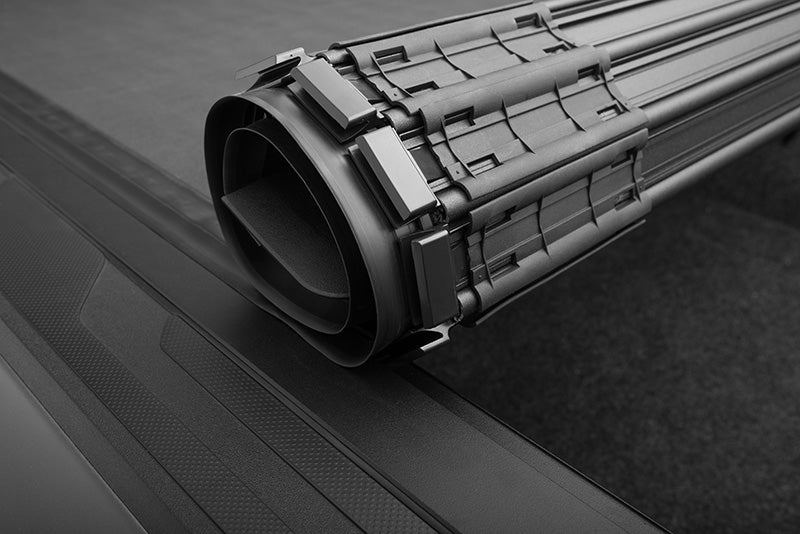
Pickup or Van: Which Is Right for Your Trade?
For tradespeople, the right work vehicle isn’t just a mode of transport—it’s a vital tool that helps drive your business forward. Whether you're transporting heavy-duty equipment, tools, or materials, your choice between a pickup truck and a van can have a significant impact on your day-to-day efficiency. Both are popular work vehicles across Europe, but the best option for you depends on your specific trade, working environment, and personal preferences.
Here’s a breakdown of the key differences, advantages, and costs associated with pickup trucks and vans to help you make an informed decision.
Pickup Truck vs. Van – Understanding the Core Differences
A pickup truck typically features an open load bed at the back, offering substantial space for large, bulky items such as ladders, timber, or construction equipment. However, the open nature of the bed means your load is exposed to weather conditions and can be more vulnerable to theft unless fitted with protective accessories like bed covers.
In contrast, vans come with fully enclosed cargo space, offering superior protection from the elements and better security for valuable equipment. Vans are particularly beneficial for trades that require smaller tools or materials that need to remain dry and secure. Many modern vans also include integrated shelving and storage systems for easy organisation.
Benefits of a Pickup Truck for Tradespeople
Pickup trucks are ideal for professionals who frequently carry large or irregularly shaped items. The open load bed makes it simple to load and unload oversized materials such as piping, timber, or machinery.
Versatility is a key advantage. Whether you're delivering building supplies or transporting landscaping gear, pickup trucks are capable workhorses.
Another standout benefit is off-road capability. Many pickups—especially 4WD models—are built to handle rugged or rural terrain, making them excellent for tradespeople working on uneven construction sites or in remote areas.
Customisation options further enhance utility. With accessories such as RealTruck bed covers, cargo management systems and crossbars, you can tailor the vehicle to your exact needs. For example, the BAK Revolver X4s roll-up cover provides secure, weather-resistant protection for your cargo, while maintaining easy access—making it an excellent option for trades needing both flexibility and security.
Benefits of a Van for Tradespeople
On the other hand, vans offer unique advantages that make them a strong contender for tradespeople whose focus is on secure storage and organisation. The enclosed cargo area in a van ensures that tools, materials, and equipment remain safe from the weather and theft. This is particularly important for tradespeople who rely on expensive tools or need to store valuable items during transit.
Vans also provide the added benefit of organisation. Many modern vans are equipped with shelving and lockable compartments, allowing you to keep your tools neatly organised and easily accessible. For example, an electrician who needs to store various sized tools and cables would find a van’s built-in organisation features highly useful.
Additionally, vans come equipped with a spacious passenger compartment that allows for more than three passengers, making them ideal for team jobs or trades requiring additional manpower.
In terms of fuel efficiency, vans usually consume less than 4WD pickups, particularly in cities, which makes them more cost-effective for daily commuting and urban deliveries.
Cost Considerations: Pickup Truck vs. Van
When deciding between a pickup and a van, it’s important to consider the financial implications. The upfront cost of a pickup is generally higher, particularly for 4WD models, but they tend to hold their resale value well, which could make them a good investment over time. On the flip side, vans can be more affordable initially, though they might require custom modifications for extra security or storage options.
Insurance and maintenance costs also vary between the two. Pickup's, especially those with off-road capabilities, often come with higher insurance premiums and maintenance costs. While vans may have lower running costs, the customisations that some tradespeople need to make (such as custom shelving or additional security features) can add to the price.
Fuel efficiency is another consideration. Vans generally offer better fuel economy, especially for city driving, while utes may consume more fuel, particularly when driving off-road. Depending on your trade and the distances you travel, this difference in fuel costs can add up.
Which Vehicle Fits Your Trade?
Different trades require different tools and vehicles, so it’s essential to match the vehicle to your work environment. Here’s a guide to help you decide which vehicle might suit you best:
Pickup Trucks
- Ideal for trades that involve transporting large, heavy, or awkwardly shaped items.
- Great for builders, landscapers, and technicians who frequently operate on construction sites or rough terrain.
- Perfect for those requiring custom racking systems, weather-resistant covers, or off-road capability.
Vans
- Suited to trades that prioritise security, organisation, and urban driving.
- Excellent for electricians, plumbers, service engineers, and couriers needing enclosed storage.
- Helpful for carrying small tools or delicate equipment and for jobs that require extra crew seating.
Making the Final Decision
So, which is the right choice for you? The decision ultimately depends on your specific trade, daily work requirements, and budget. Pickup trucks offer incredible versatility, large load capacity, and off-road capabilities, making them perfect for tradespeople who need to haul heavy or bulky equipment. Plus, the customisation options, like RealTruck Tonneau Covers and Cargo Carriers, allow you to tailor your pickup to suit your exact needs. Vans, however, provide secure, organised storage, making them ideal for tradespeople who need to protect valuable tools or store smaller materials in a more organised fashion.
When it comes down to it, the best vehicle for your business is the one that will make your job easier, more efficient, and secure. Think about the types of jobs you do, how often you need to transport large or bulky items, and the environment in which you work. Once you’ve considered these factors, you’ll be in a better position to make the right choice for your trade.

